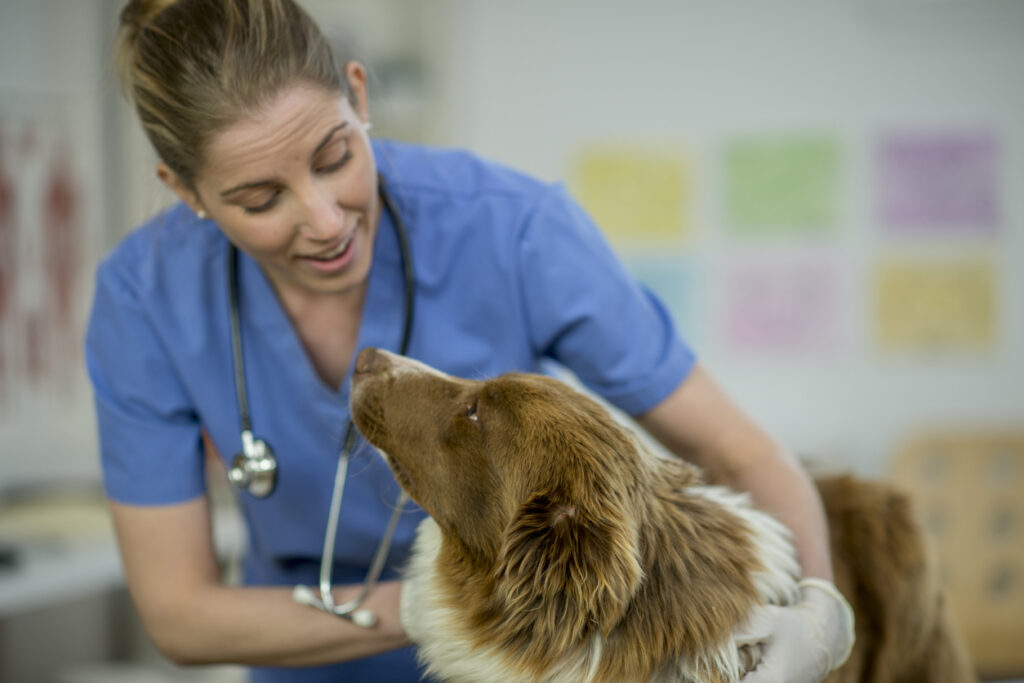Press Release
7 September 2023
CVS’ Bristol Vet Specialists to research Idiopathic Epilepsy in Border Collies

CVS’ Bristol Vet Specialists (previously known as Highcroft Veterinary Referrals) is putting a call out to the profession to ask for help with research on Idiopathic Epilepsy in Border Collies.
The Border Collie is one of the most popular breeds in the UK. However, young Border Collies are frequently affected by idiopathic epilepsy, which is a disease that manifests itself as seizures.
The disease in Border Collies can be particularly severe. Despite the use of anti-epileptic medication, affected dogs can continue to have poor seizure control. Solving the issue of epilepsy in this breed requires a better understanding of the cause(s) of their seizures.
A team of specialists at Bristol Veterinary Specialists (BVS) – led by Hélène Vandenberghe (Neurology), Emma Roberts (Internal Medicine) and Nicolas Granger (Neurology) – have therefore launched a new study to try and help answer this question. The study is being funded by CVS, as part of its Clinical Research Grants.
In humans, there are confirmed links between vitamin B12 deficiency and seizures and additionally that the use of anti-epileptic medication can reduce vitamin B12 levels, leading to exacerbation of epilepsy. Border Collies can suffer from a genetic condition called Imerslund-Gräsbeck syndrome, which reduces the blood and cellular levels of vitamin B12. Due to these findings, the team will specifically be looking at the role of vitamin B12 in epilepsy in Border Collies.
The BVS team is putting out a call to the profession to ask if owners may like to put their dogs forward, and to ask vets seeing these pets in primary care practices to get involved. They are looking for Border Collies who are either;
- Diagnosed with idiopathic epilepsy (the study population), have not yet been started on treatment, have no history of recent vitamin B12 supplementation, and who require a blood sample to be taken as part of their work up; or,
- Who are two years of age or older, are presented to their vet for reasons unrelated to seizures (the control population), have no history of seizures or recent vitamin B12 supplementation, and require a blood sample to be taken as part of their investigations. Dogs with known renal (kidney) disease, hypothyroidism, chronic or protein losing enteropathy, exocrine pancreatic insufficiency and hypothyroidism cannot be included as control dogs.
Participating dogs do not need to be referred to BVS to take part in this study and can be seen by their own vet. All tests included in the study are covered by the grant and so there are no additional costs for the owner.
For further information, to become involved, or to refer a case, please contact; referrals@bristolvetspecialists.co.uk.
CVS Group operates across small animal, farm animal, equine, laboratories and crematoria, with over 500 veterinary practices and referral centres in the UK, the Republic of Ireland and the Netherlands. In the last five years the company has invested nearly £80 million in its sites, facilities and equipment, in addition to industry leading training and support, to give the best possible care to animals. For more information about careers with CVS Group visit; www.careerswithcvs.co.uk.
